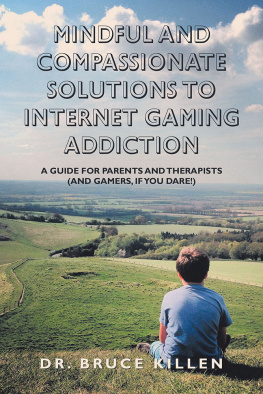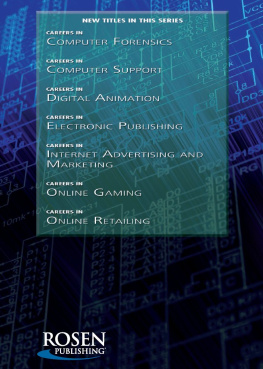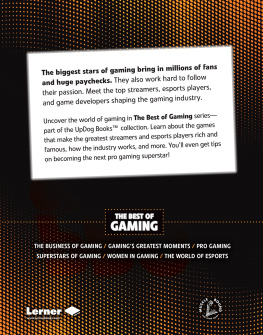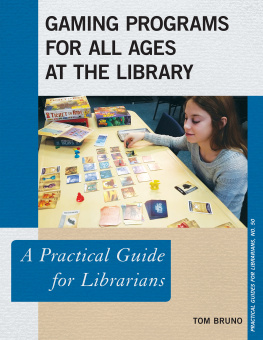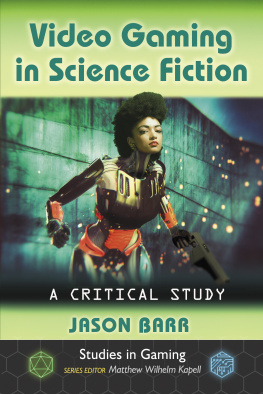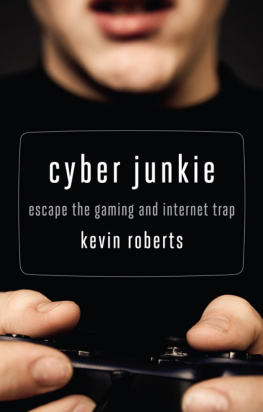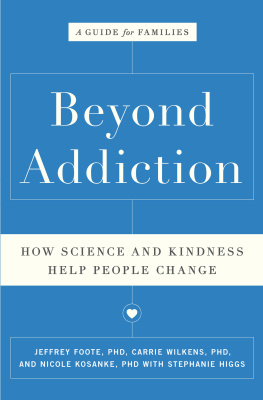MINDFUL AND
COMPASSIONATE
SOLUTIONS TO
INTERNET GAMING
ADDICTION
A Guide for Parents and Therapists
(and Gamers, if You Dare!)
DR. BRUCE KILLEN

Copyright 2020 .
All rights reserved. No part of this book may be used or reproduced by any means, graphic, electronic, or mechanical, including photocopying, recording, taping or by any information storage retrieval system without the written permission of the author except in the case of brief quotations embodied in critical articles and reviews.
Balboa Press
A Division of Hay House
1663 Liberty Drive
Bloomington, IN 47403
www.balboapress.com
1 (877) 407-4847
Because of the dynamic nature of the Internet, any web addresses or links contained in this book may have changed since publication and may no longer be valid. The views expressed in this work are solely those of the author and do not necessarily reflect the views of the publisher, and the publisher hereby disclaims any responsibility for them.
The author of this book does not dispense medical advice or prescribe the use of any technique as a form of treatment for physical, emotional, or medical problems without the advice of a physician, either directly or indirectly. The intent of the author is only to offer information of a general nature to help you in your quest for emotional and spiritual well-being. In the event you use any of the information in this book for yourself, which is your constitutional right, the author and the publisher assume no responsibility for your actions.
Any people depicted in stock imagery provided by Getty Images are models, and such images are being used for illustrative purposes only.
Certain stock imagery Getty Images.
ISBN: 978-1-9822-4086-8 (sc)
ISBN: 978-1-9822-4088-2 (hc)
ISBN: 978-1-9822-4087-5 (e)
Library of Congress Control Number: 2020900339
Balboa Press rev. date: 01/08/2020
This first book is for my amazing, ninety-plus-year-old parents, Chuck and Pat, who recently celebrated seventy years of marriage. You are an inspiration to so many, and I am so grateful to you for a great life. I love you.
Mental Health and
Confidentiality Disclaimer
T his book is based on many years of psychotherapy practice, as well as research on Internet gaming but is in no way intended to substitute for direct, in-person mental health support from a licensed mental health professional. The ideas, concepts, tools, and information herein should help the majority of people affected by problematic online gaming, but you should seek professional mental health support if ever in doubt, or if you find yourself or a loved one struggling to behave safely or function in any important way. There are suggested mental health resources in Appendix A.
To protect my clients privacy and confidentiality, I have changed their names and details about their lives so that they cannot be identified. Some of the case examples in this book are composites based on years of practice, which the reader should find helpful. Any representation that seems to identify an actual person or persons is purely coincidental.
Contents
I am so grateful to so many for this book, my first. My loving parents, Pat and Chuck, supported rich educational experiences and a love of learning, and my (now adult) children, Jordan and Amara, were enthusiastic throughout and offered helpful editing suggestions. My life love, Maria Mandolini, often reminded me to set time aside for the book, and she was amazingly loving and supportive in so many ways. Many friendstoo many to name; you know who you are!were very encouraging, and my dissertation advisor, Rachael Cresci, and dissertation editor, Penny Orloff, were extremely positive about my research, which would eventually lead to this book. Zoe Badger, Nolan Estes, and Hannah Martineau at Balboa Press were my frequent mindfulness bells, patiently and periodically contacting me to keep me on track. Thanks to all of you!
W hen my doctoral dissertation was approved in June 2017, it would be another year, June 2018, until Internet gaming disorder (IGD) received official recognition by the World Health Organization (WHO). The WHO got it right. I know because I looked at 325 studies, overwhelmingly concluding that IGD is a real challenge deserving official recognition as a behavioral addiction afflicting millions of people. (The Diagnostic and Statistical Manual of Mental Disorders, or DSM, the sort of bible for mental health clinicians in much of the world, has still not included it as an officially recognized mental disorder, recommending that it be considered for further study when the fifth and latest version came out in May 2013. I am sure it will be official in the next version of the DSM, which most likely wont be out for a few years.)
Because IGD is real and we now know much more about it, this book can help you overcome Internet gaming challengesyour childs, your teens, or your own. It is also a simple guidebook for overcoming other Internet addictions (because there is a lot of overlap in Internet addictions based on the research done so far) and for improving your own life in virtually all areas. What you will find here is based on my nearly thirty years experience as a psychotherapist working with many people with gaming (and myriad other life) challenges, and from information gleaned from my dissertation. The studies I examined looked at everything, from the legitimate benefits people derive from the Internet generally and Internet gaming specifically to the neurobiology, comorbidity (associated problems), and treatment of several problematic Internet addictions (including gaming), as well as the few therapies previously attempted.
(Note: Because much of the research on Internet addiction does not specify exactly which Internet applications were studied in a particular study [i.e., Internet addiction generally vs. gaming vs. cybersex (porn) vs. shopping vs. social media], at times I mention the research on Internet Addiction (IA) in addition to studies specifically related to gaming.)
In this guidebook, I seek to be concise and make it as easy as possible for you to benefit as much and as quickly as possible, through treatment strategies and tools that are effective and that you can use immediately . I am excited to share them with you.
They include some of the most effective tools in modern psychotherapy (and life), and thus they borrow from many outstanding, evidence-based approaches. I metaphorically stand on the shoulders of giantsthat is, many creative and successful psychotherapists going back decades (and millennia in some cases)in applying what they, science, and my experiences have shown can help people with the disorder, usually with good results. Again, you will find that those tools are not only excellent for helping with gaming issues but can also benefit other areas of your life.
CHAPTER 1
The Foundations

A s the title of this book indicates, the twin pillars of this guidebookand in my humble opinion, two of the most basic tools of successful psychotherapy and a more satisfying lifeare mindfulness and self-compassion. When we take the time and summon the courage to become aware of what is going on in the present moment, especially our own subjective, internal experiences moment to moment, and when we magnify the nonjudgmental aspect of mindfulness to cultivate self-compassion, almost everything in our lives eventually improves, often a great deal. This does not mean it is easy; all the religious traditions and psychological models I am familiar with accept that at least periodic suffering is a part of life.
Next page
